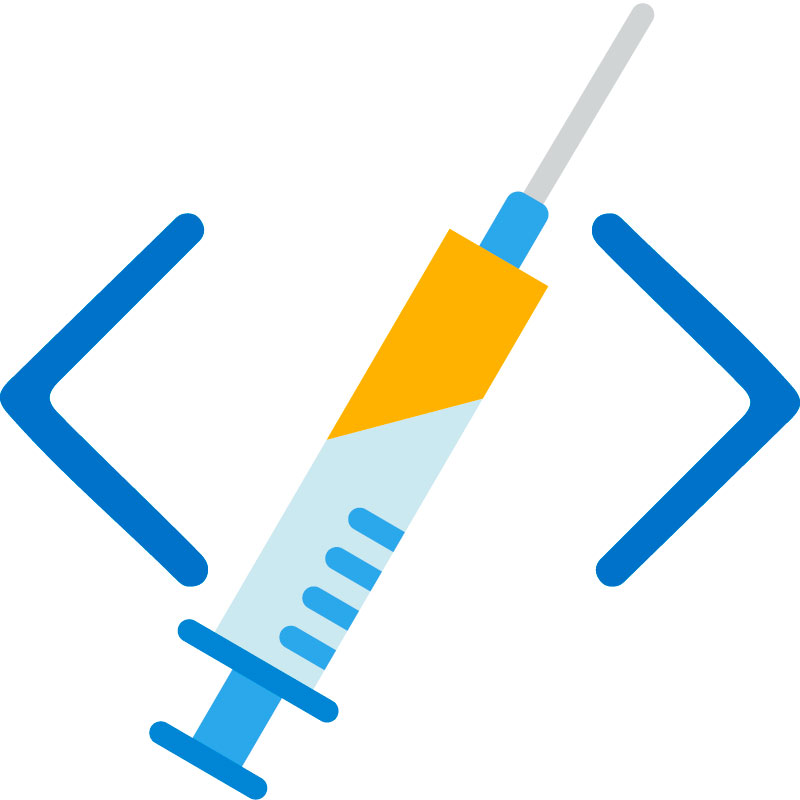What inyector is ?
Injector is a very simple tool that allow application that use Microsoft DI inyection to auto configure things.
This Library Is NOT a dependency injection engine.
It is simply an abstraction layer to configure our objects no matter what technology we use as an injection engine.
You can use Injector with your favorites libraries like Asp.Net Core DI, Autofac, Ninject and others ...
Grab the latest Inyector NuGet package and install in your solution. https://www.nuget.org/packages/Inyector/
PM > Install-Package Inyector
NET CLI - dotnet add package Inyector
paket add Inyector --version 1.2 - Scan (Allow you to declare what assemblies Inyector need to listen to apply the rules, this is made to avoid processing all the referenced assmeblies)
c.Scan(typeof(Startup).Assembly) - Modes
(The way to declare inyection engine without repeat code,
you define a Mode with name an with an action that get both types)
c.AddMode("MyCustomMode", (type, interf) => services.AddScoped(interf, type)); - Rules
You can apply any rule in an assembly or in all the shared scaned assemblies
You can create your custom rules as well.
- AddRuleForNamingConvention
(You can auto-inyect all the objects that have the convention of Class and IClass (Interface) )
- AddRuleForEndsWithNamingConvention
(You can auto-inyect all the objects that finish with a list of key values like "Helper" and "Factory" then
if you have FooFactory and IFoo2Factory they can be auto-inyected)
- AvoidInyectorAttribute you can avoid to apply any Inyector Rule
with this attribute
- InyectAttribute
with this attribute you can declare what object Inyector should auto-inyect
You set the Interface and the Mode, if not Default will the mode (if exist) that apply to this Attribute
[Inyect(typeof(IFooHelper))]
public class CarHelper : IFooHelper
{
} [Inyect]
public class CarHelper
{
} [Inyect(typeof(IFooHelper), mode : "MyCustomMode")]
public class CarHelper : IFooHelper
{
}PM > Install-Package Inyector-AspNetCore
NET CLI - dotnet add package Inyector-AspNetCore With AspNet core you can avoid to configure modes, using the ServiceLifetime Enum to apply pre-builded Modes, Also you can define your owns.
// This method gets called by the runtime. Use this method to add services to the container.
public void ConfigureServices(IServiceCollection services)
{
services.AddMvc();
// use injector
services.UseInjector(configurations =>
{
configurations.Scan(typeof(Startup).Assembly)
.DefaultMode(services, ServiceLifetime.Singleton)
.AddRuleForNamingConvention(ServiceLifetime.Singleton);
});
}To use injector directly you have call C# InyectorStartup class like this :
InyectorStartup.Init(c =>
{
c.Scan(typeof(AnyClass).Assembly)
.AddRuleForNamingConvention((type, interf) => services.AddSingleton(interf, type))
.AddRule((type, inter)=> services.RegisterType(inter, type));
});Inyector is licensed under the MIT License
Want to contribute? Great!
Made with ❤ in DGENIX



